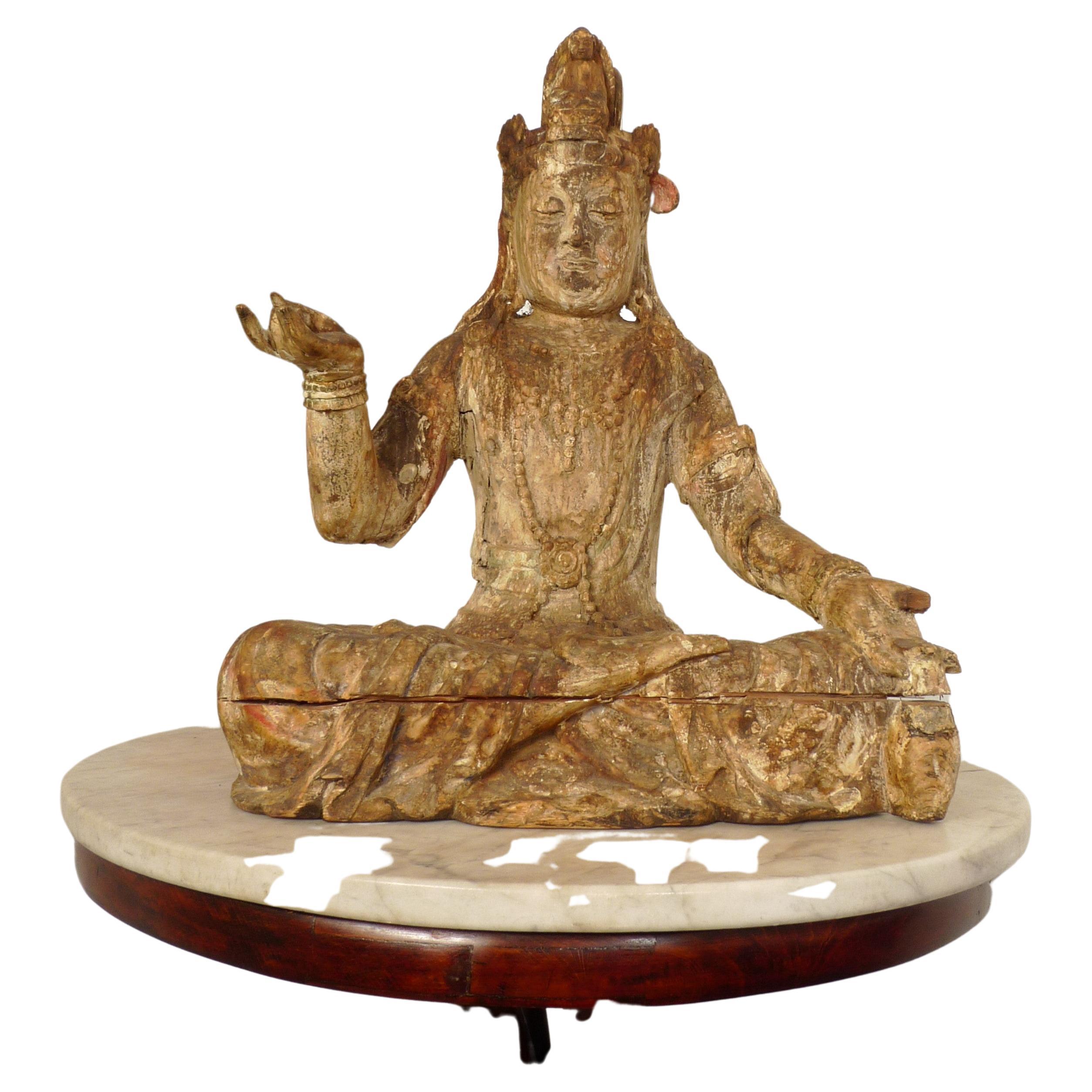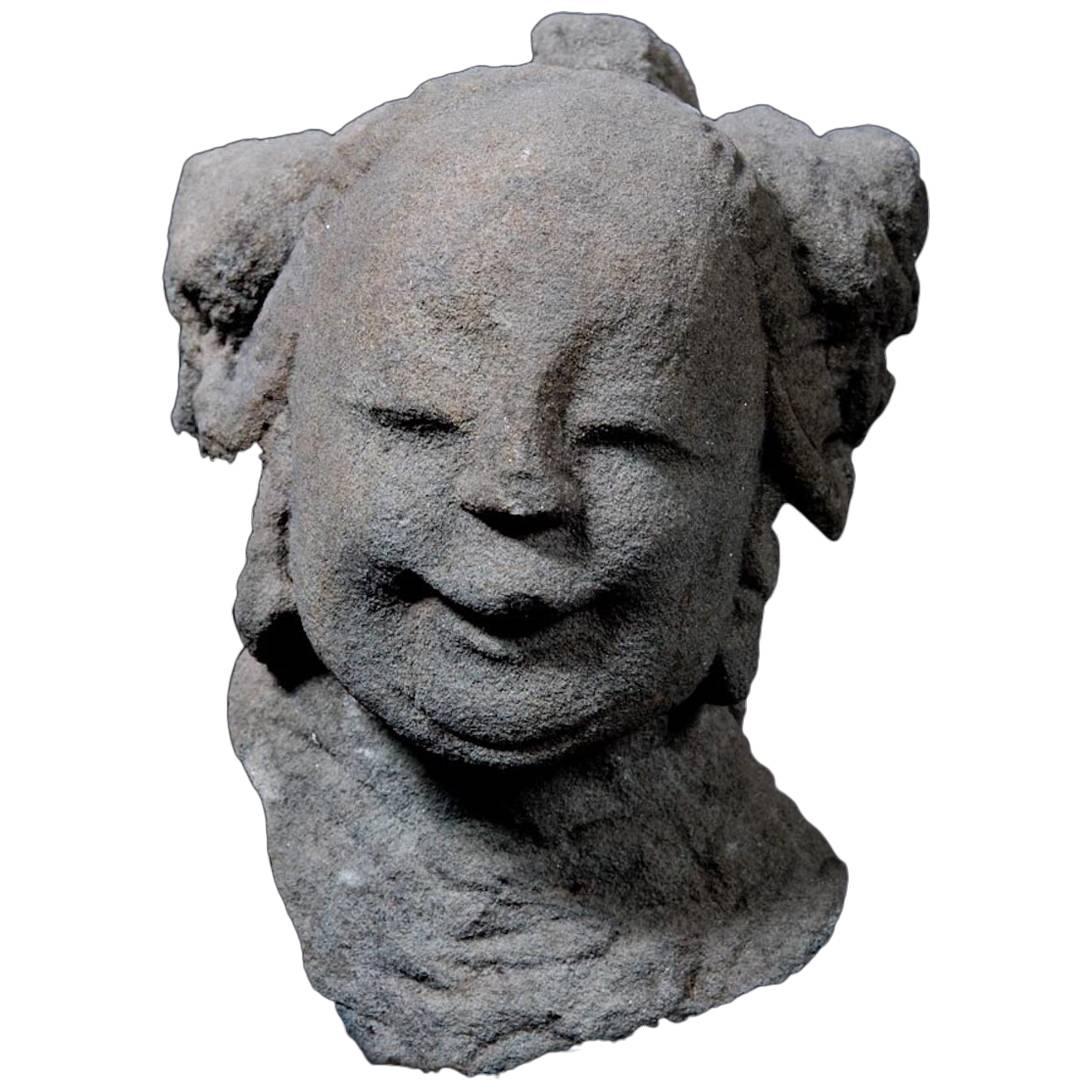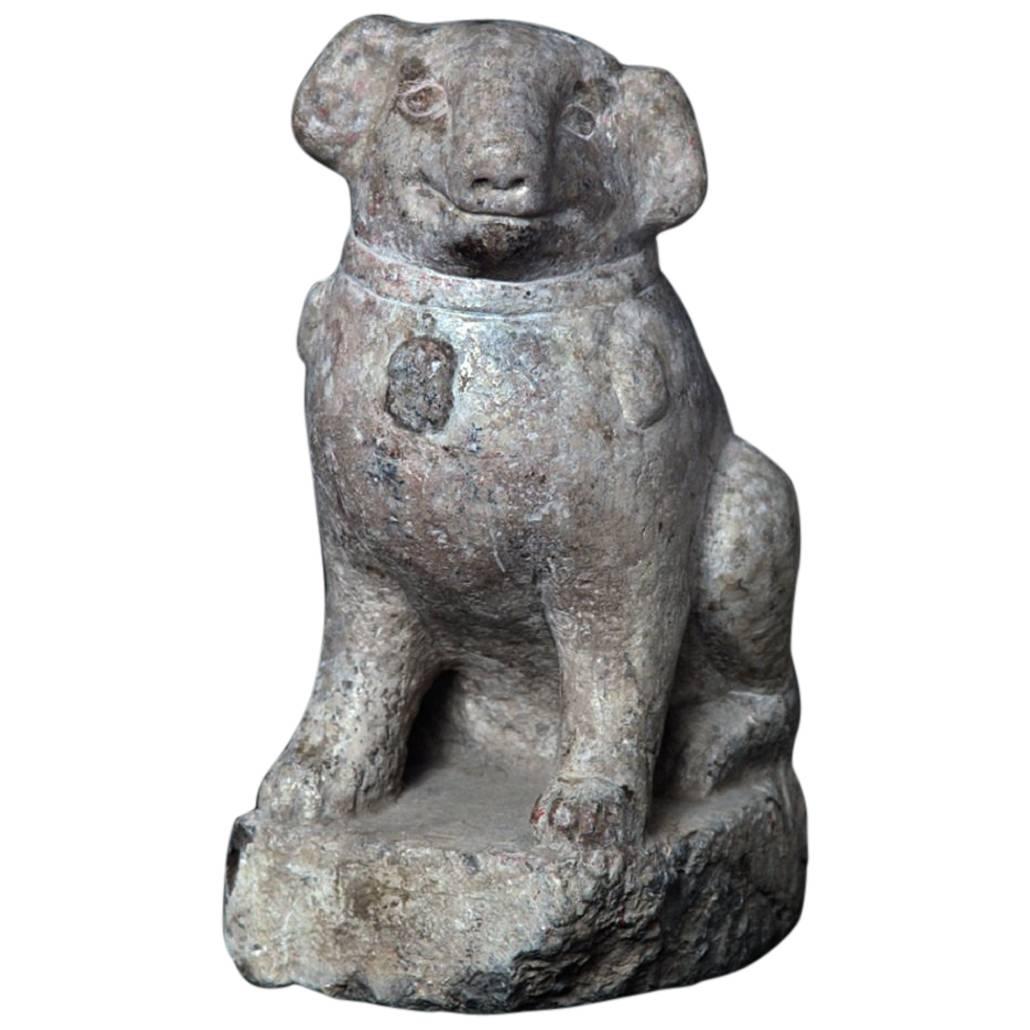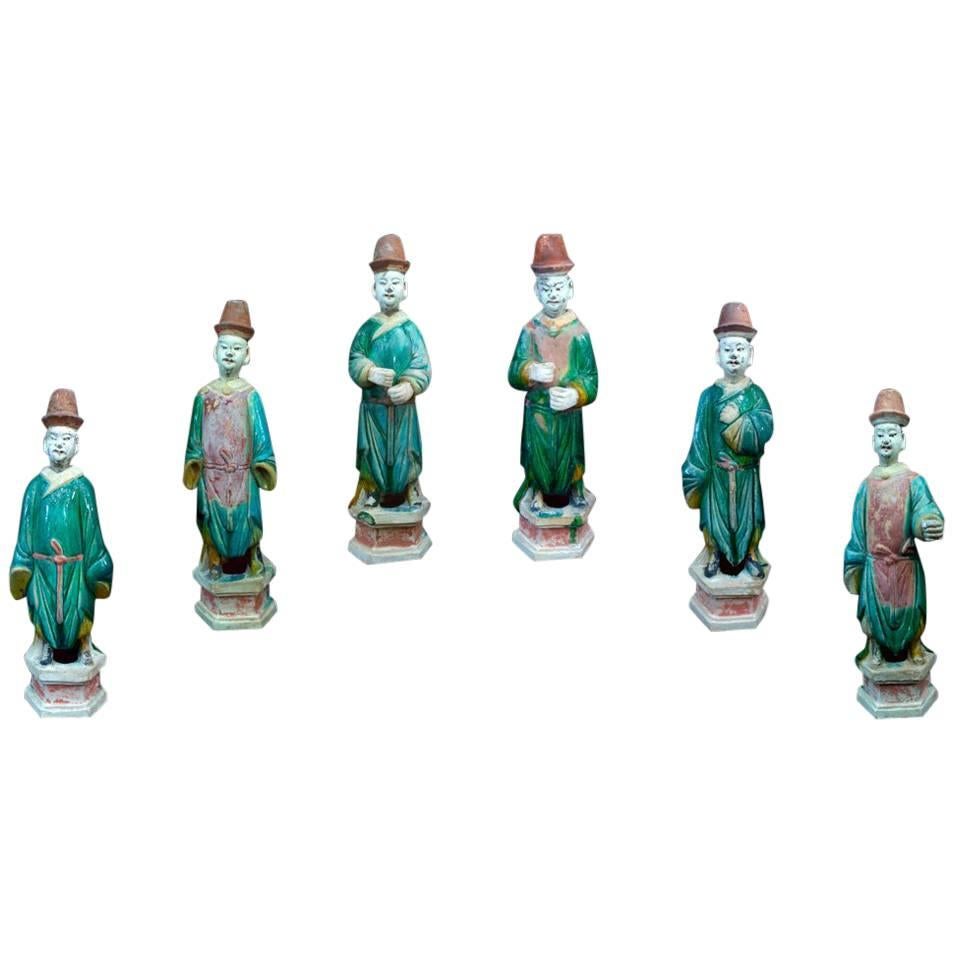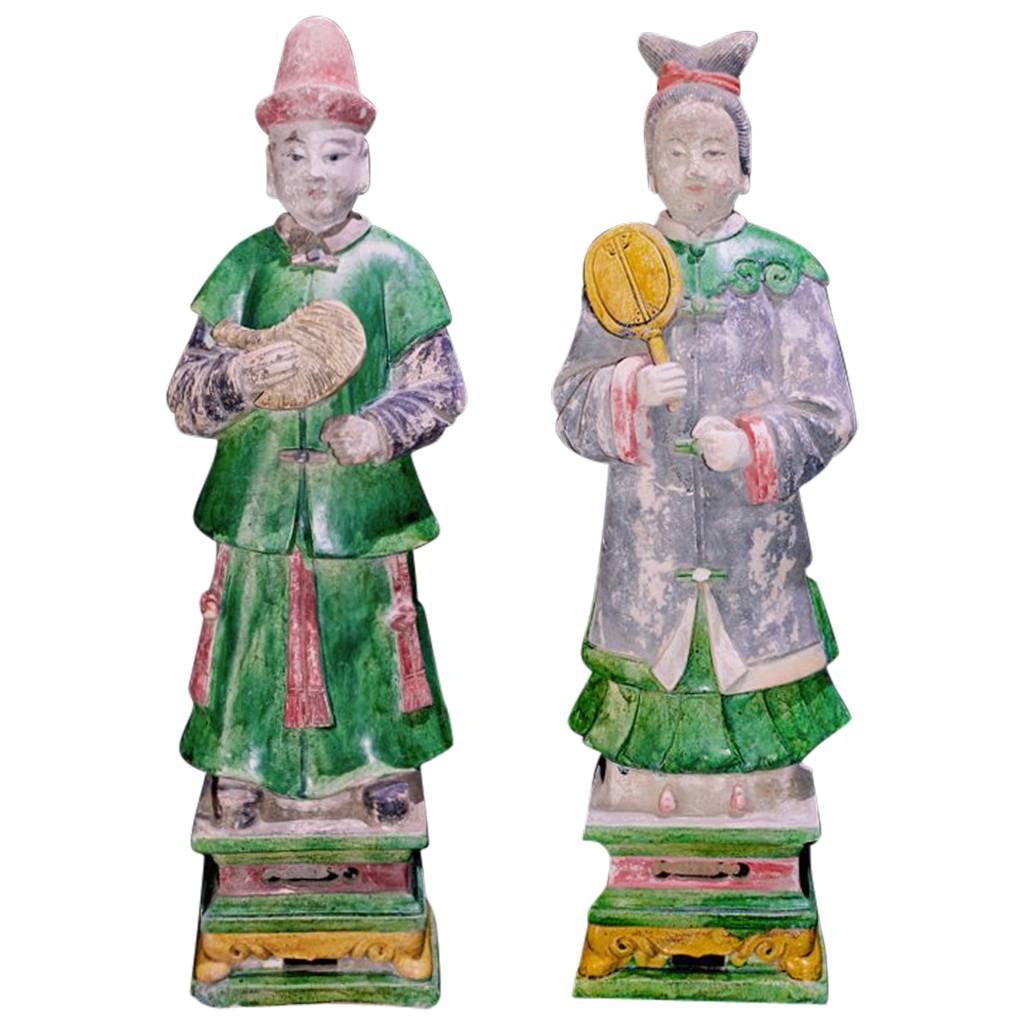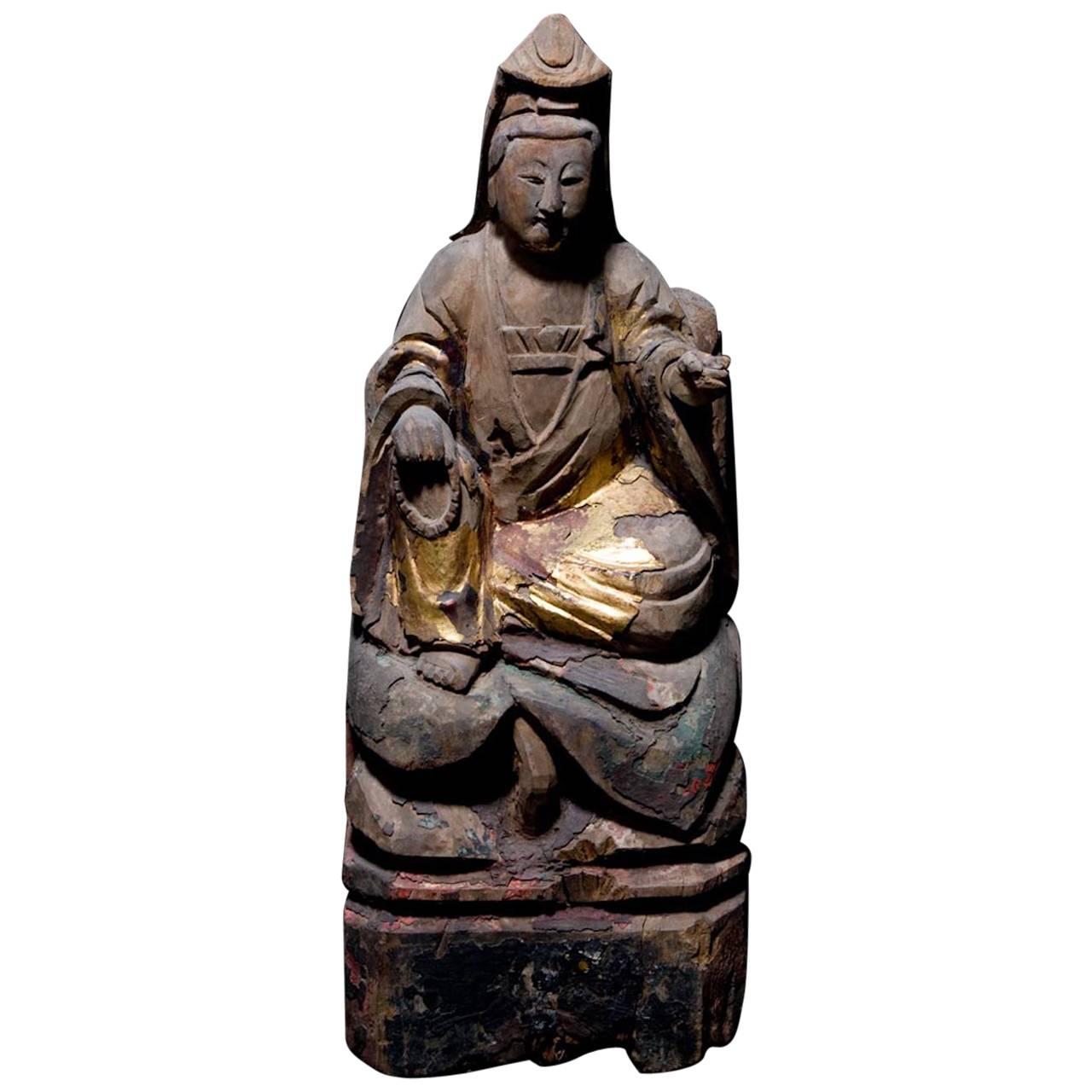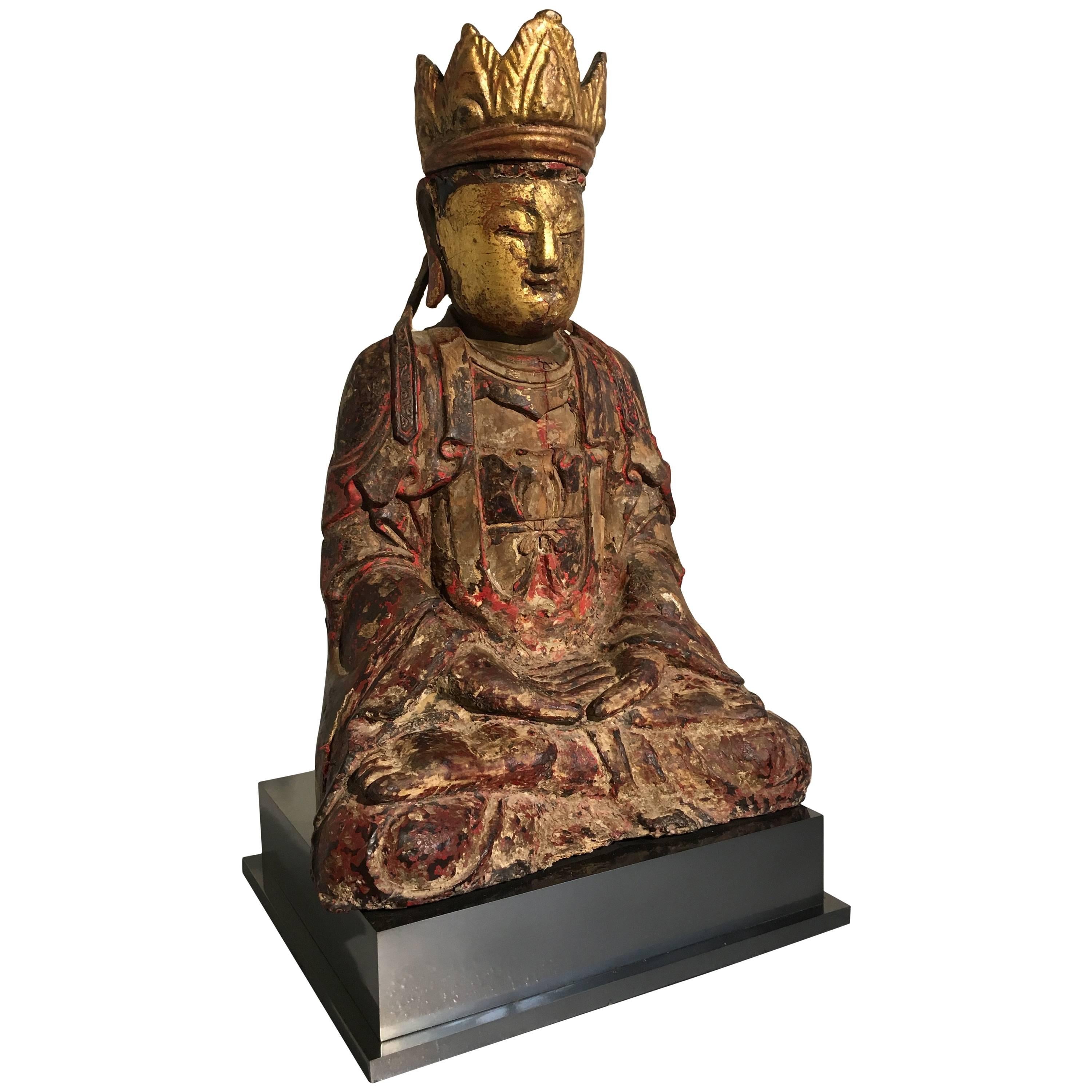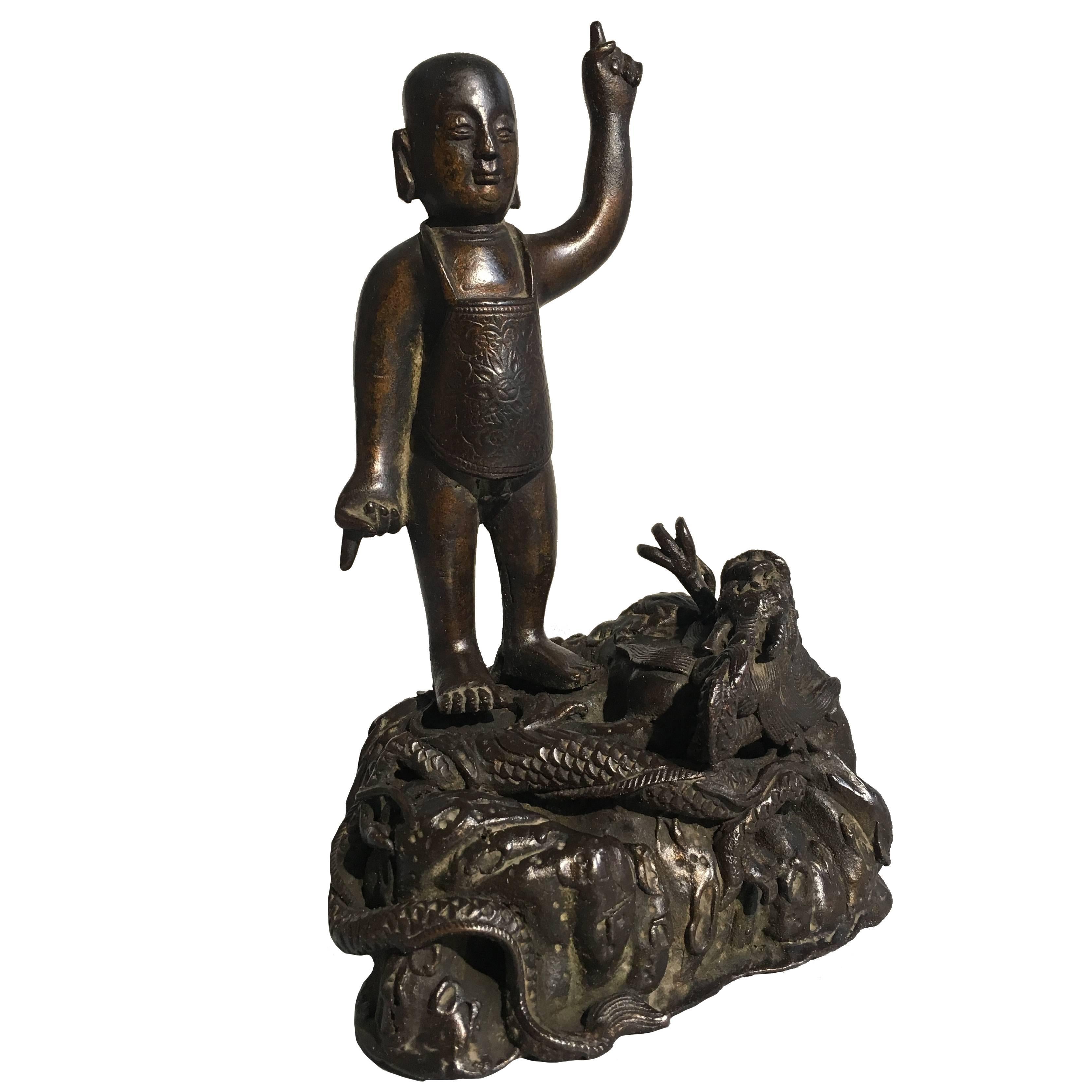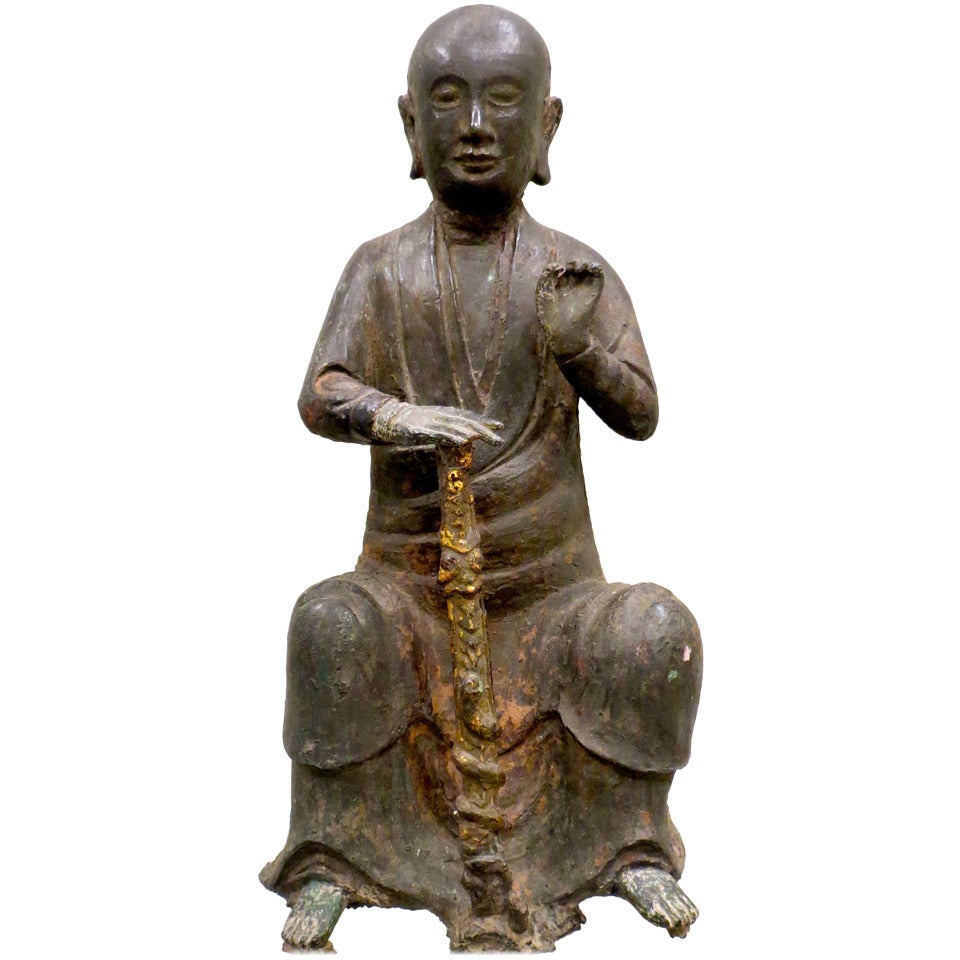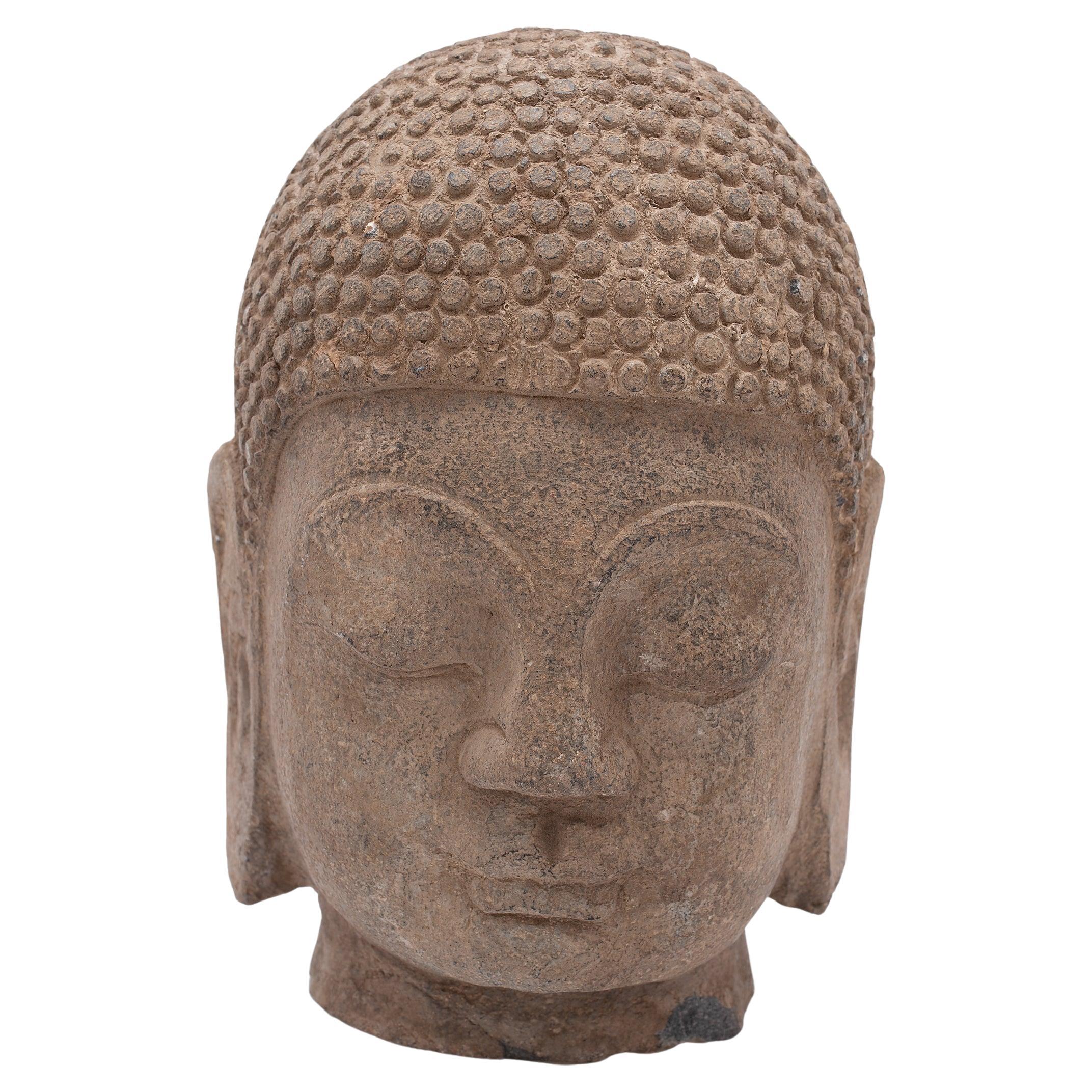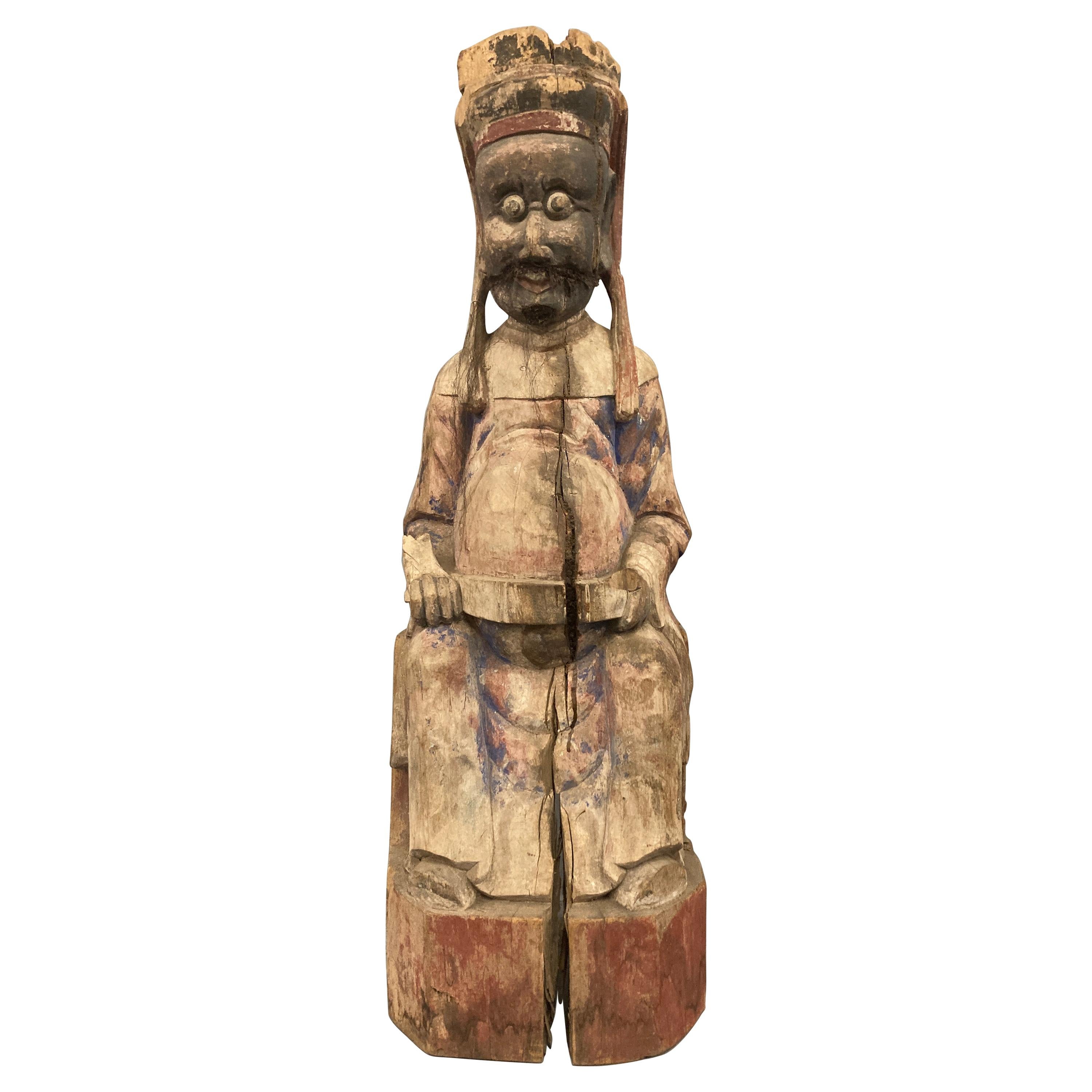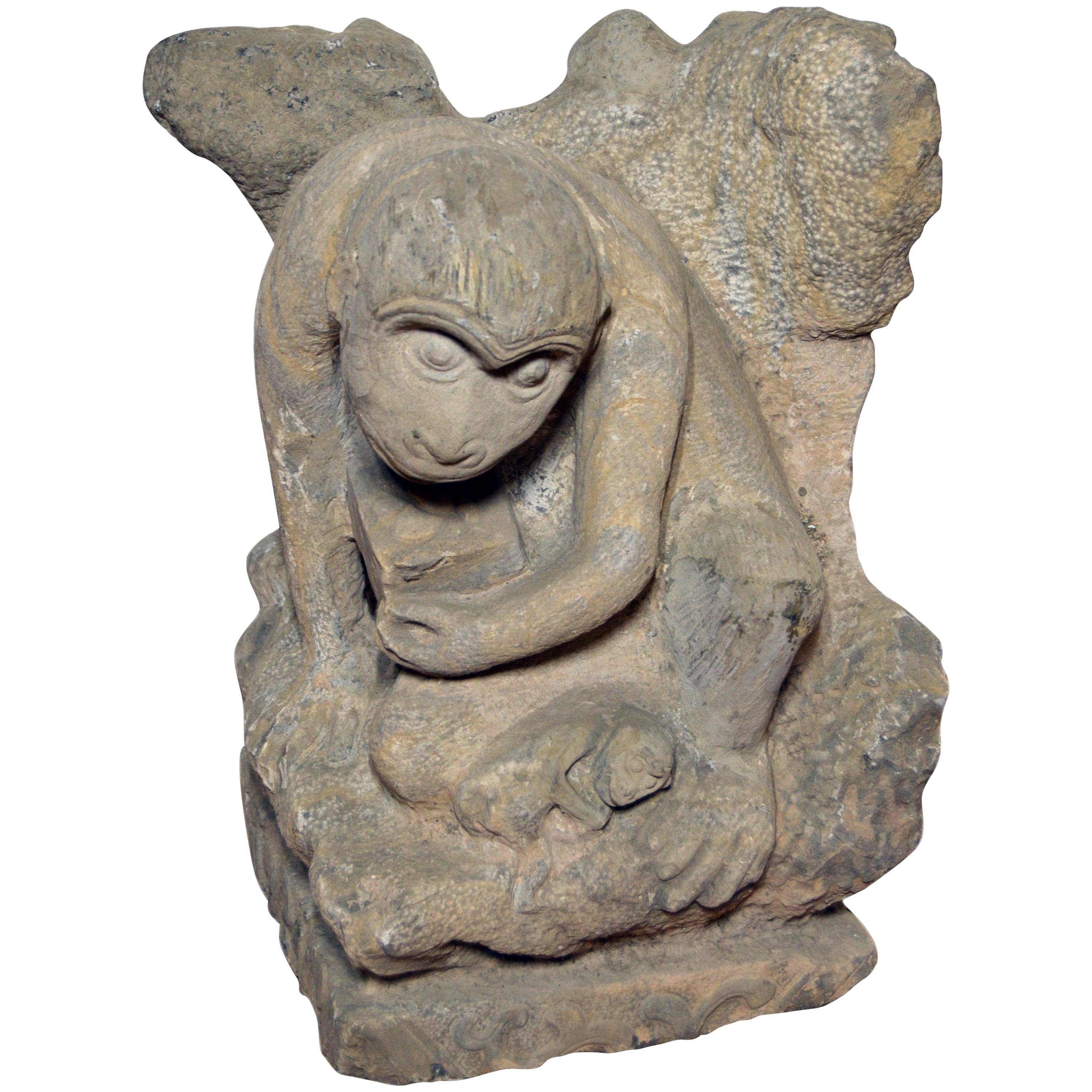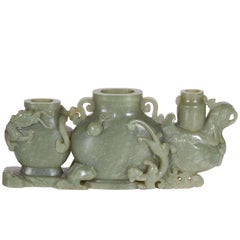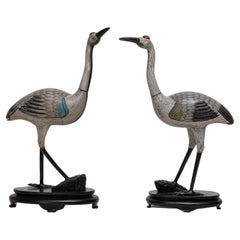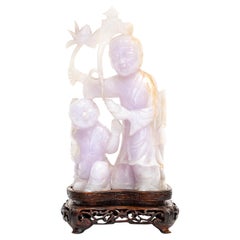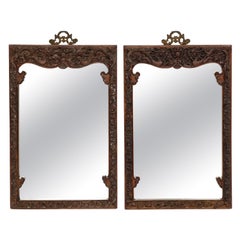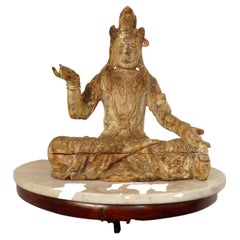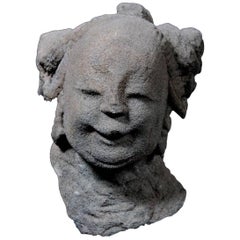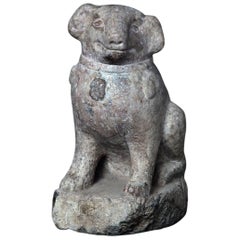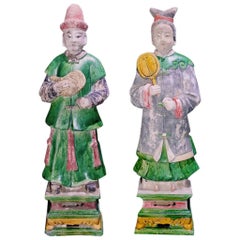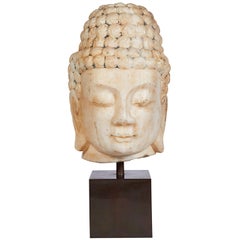
White Stone Head of Buddha, Chinese, Ming Dynasty, '1368-1644'
View Similar Items
Want more images or videos?
Request additional images or videos from the seller
1 of 11
White Stone Head of Buddha, Chinese, Ming Dynasty, '1368-1644'
$35,000List Price
About the Item
- Dimensions:Height: 20.5 in (52.07 cm)Width: 9.5 in (24.13 cm)Depth: 10 in (25.4 cm)
- Style:Ming (Of the Period)
- Materials and Techniques:
- Place of Origin:
- Period:
- Date of Manufacture:First Half of the 1600s
- Condition:Wear consistent with age and use.
- Seller Location:New York, NY
- Reference Number:1stDibs: f91951704207230523fs
About the Seller
4.9
Platinum Seller
Premium sellers with a 4.7+ rating and 24-hour response times
Established in 1820
1stDibs seller since 2011
193 sales on 1stDibs
Authenticity Guarantee
In the unlikely event there’s an issue with an item’s authenticity, contact us within 1 year for a full refund. DetailsMoney-Back Guarantee
If your item is not as described, is damaged in transit, or does not arrive, contact us within 7 days for a full refund. Details24-Hour Cancellation
You have a 24-hour grace period in which to reconsider your purchase, with no questions asked.Vetted Professional Sellers
Our world-class sellers must adhere to strict standards for service and quality, maintaining the integrity of our listings.Price-Match Guarantee
If you find that a seller listed the same item for a lower price elsewhere, we’ll match it.Trusted Global Delivery
Our best-in-class carrier network provides specialized shipping options worldwide, including custom delivery.More From This Seller
View AllAntique Chinese Celadon Green Jade Carving, Triple Vase, Qing Dynasty
Located in New York, NY
An extremely finely carved antique Chinese Qing dynasty, Celadon green triple vase/brush washer with an Imperial Dragon from behind attacking a bird in fro...
Category
Antique 19th Century Chinese Qing Scholar's Objects
Materials
Jade
A Marvelous Pair of Chinese Cloisonné Figures of Cranes on Stands, Qing Dynasty
Located in New York, NY
A Marvelous and Large Pair of Chinese Cloisonné Figures of Cranes on Stands. Step into the captivating world of Chinese artistry with this remarkabl...
Category
Early 20th Century Chinese Qing Animal Sculptures
Materials
Bronze
$12,400 Sale Price / set
20% Off
A Rare Chinese Pale Lavender Jadeite Carving of Two Immortals
Located in New York, NY
A Rare Chinese Pale Lavender Jadeite Carving of Two Immortals, on its original carved wood base, from a private collection. One standing and one kneeling, mounted on an openwork woo...
Category
Vintage 1920s Chinese Qing Sculptures and Carvings
Materials
Jade
Pair of 19th Century Chinese Hardwood Hand-Carved 5-Claw Dragon Mirrors
Located in New York, NY
A pair of 20th century or earlier Chinese hardwood hand carved five-claw dragon mirrors. Each is hand carved with high relief Imperial five-claw dragons flying in the air. They also ...
Category
Antique Early 1900s Chinese Qing Sculptures and Carvings
Materials
Bronze
Chinese Painted Soapstone Scholar's Rock Sculpture
Located in New York, NY
A beautiful Chinese hand painted soapstone scholar's rock sculpture. This large hand carved soapstone sculpture is hand painted with white flowers pa...
Category
Antique Late 19th Century Chinese Scholar's Objects
Materials
Cast Stone
A Ming Dynasty Patinated Bronze Relief Work Vase Turned to a Lamp
Located in New York, NY
Hailing from the Ming period in 16/17th century, this monumental bronze vase is a fine example of the auspicious decor and markings unique to Chinese furnishings. The vase is cast wi...
Category
Antique 17th Century Chinese Ming Metalwork
Materials
Bronze
$18,240 Sale Price
20% Off
You May Also Like
A large wood Buddha/Guanyin with traces of pigments Ming Dynasty (1368-1644)
By Master
Located in Vienna, AT
A LARGE WOOD FIGURE OF GUANYIN WITH TRACES OF PIGMENTS
MING DYNASTY (1368-1644)
The bodhisattva is shown seated in padmasana, wearing long flowing ro...
Category
Antique Mid-17th Century Chinese Ming Sculptures and Carvings
Materials
Hardwood
Ming Dynasty Celestial Deity Head Carved in Stone - China '1368-1644 AD'
Located in San Pedro Garza Garcia, Nuevo Leon
Wonderful celestial deity head with a jovial expression in stone with a finely engraved cap. It is mounted on a custom lucite base.
This piece is accompanied by a Certificate of Authenticity, and Certificate of Expertise by Jean-Yves Nathan - Specialist in Asian Arts for the CEDEA (The European Confederation of Art Experts).
The Ming dynasty was the ruling dynasty of China – then known as the Empire of the Great Ming...
Category
Antique 15th Century and Earlier Chinese Ming Antiquities
Materials
Stone
Important Ancient Chinese Effigy Pug Dog, Ming Dynasty 1368-1644
Located in South Burlington, VT
China, a carving of a canine “Pug”, Ming Dynasty, 1368-1644 CE
Dimensions: 38 cm, 15” High
Photographs taken indoors and out of doors for your viewing pleasure.
The hand carved limestone beast shown on its haunches with naturalistic joyful expression and a well defined compact head, ears, noes, eyes, feet, and tail parted to one side on reverse with distinctive collar ornament seated four square on a thick base all-over showing a weathered surface from significant age.
Formerly exhibited “Asia Week” New York City, Fuller Building, Hutton Gallery 2006.
Provenance: ex collection luoyang, Henan Province, China.
Includes custom display base as shown
Catalog reference: 35 years collecting 35 treasures, Number 35, p.76 (photo)
In ancient China, it is a well-known fact that several types of small dogs were bred and were favored pet gifts between emperors and kings including Lion Dogs, Pekingese and Lo-sze breeds. Some Lo-sze are pictured wearing collars with bells a frequent combination fancied by European royalty of the seventeenth and eighteenth centuries. Lo-sze or pugs were prized for their compact body, good bones, flat face, square jaw, short coat, curled tail, side set back ears, and temperate disposition.
History:
Placing stone animals in important tombs can be traced back at least to the Qin Dynasty (221-206 BCE), some two thousand years ago. In ancient times, stone animals and human figures placed before imperial tombs symbolized royal power and privilege in addition to decorative functions.
The first Ming tomb...
Category
Antique 15th Century and Earlier Chinese Ming Sculptures and Carvings
Materials
Limestone
$6,800 Sale Price
20% Off
Magnificent Court Attendants in Terracotta - Ming Dynasty, China 1368-1644 AD TL
Located in San Pedro Garza Garcia, Nuevo Leon
A magnificent pair of male and female courtiers from the Ming Dynasty (1368-1644 CE) in excellent condition. They are wearing traditional Daopao robes in green and black garments wit...
Category
Antique 15th Century and Earlier Chinese Ming Antiquities
Materials
Terracotta
Lady Guanyin Bodhisattva Gilded Wood Carving - Ming Dynasty, China 1368-1644 AD
Located in San Pedro Garza Garcia, Nuevo Leon
Magnificent Lady Guanyin Bodhisattva seated in Royal Relaxation pose hand-carved in Gilded Wood with traces of paint still visible.
This expressi...
Category
Antique 15th Century and Earlier Chinese Ming Antiquities
Materials
Wood
6 Elegant Ming Dynasty Court Attendants in Glazed Terracotta, China 1368-1644 AD
Located in San Pedro Garza Garcia, Nuevo Leon
A fine set of a six court attendants as in the Forbidden City of Beijing, elegantly dressed in a Green & Red Daopao – a traditional men’s formal attire from the Ming Dynasty dated 1368-1643 A.D. – with glazed robes and Red Pigment remains in their hat and belts. They stand in an honorary posture atop a red plinth, some with orifices in their hands, where spirit objects were placed to comfort or satisfy the deceased. The heads are detachable, as often seen on the larger figures from this period.
They are accompanied by a Certificate of Authenticity, and Certificate of Expertise by Jean-Yves Nathan - a leading authority specialized in Far East Archaeology from the CEDEA (The European Confederation of Art Experts).
Burial figurines of graceful dancers, mystical beasts, and everyday objects reveal both how people in early China approached death and how they lived. Since people viewed the afterlife as an extension of worldly life, these figurines, called mingqi, sometimes referred as “spirit utensils” or “vessels of ghosts” disclose details of routine existence and provide insights into belief systems over a thousand-year period.
The Ming dynasty was the ruling dynasty of China – then known as the Empire of the Great Ming – for 276 years (1368–1644 AD). Founded by Chu Yuan-chang, the rebel leader that was successful in removing the mongols from the throne. Chinese control was re-asserted in China and eastern Asia. Literature became more important, schools were created, and the justice system was reformed. The Ming dynasty is described by some as "one of the greatest eras of orderly government and social stability in human history,” was the last imperial dynasty in China ruled by ethnic Han Chinese.
The practice of burying ceramic objects with the deceased went into decline from the 10th to the 14th Century AD. There was a revival in placing miniature representations of glazed terracotta objects such a furniture, food offerings, horses, miniature statues...
Category
Antique 15th Century and Earlier Chinese Ming Antiquities
Materials
Terracotta
Recently Viewed
View AllMore Ways To Browse
Small Bronze Buddha
Ming Bronze Sculptures
Ming Buddha
Chinese Marble Head
Blue Buddha Head
Large Bronze Buddha Head
Stone Buddha Head
Ming Dynasty Buddha
Bronze Buddha Bust
Bust Bronze Chinese
Marble Buddha Head
Chinese 17th Ming Buddha
Ming Bronze Buddha
Ming Dynasty Bronze Buddha
Chinese Marble Bust
Antique Soapstone
Rice Carved
Tall Buddha Sculpture
